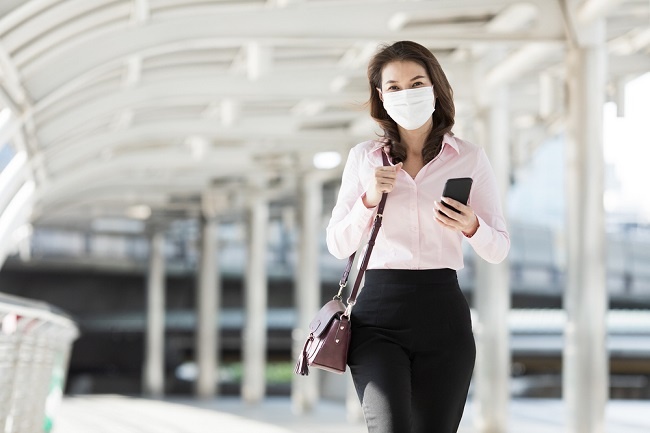The Governor of DKI Jakarta, Anies Baswedan, has announced an extension to the large-scale social restrictions (PSBB) transitional period.
The restrictions have been extended b 14 days, covering 3 – 16th July 2020.
“Based on the meeting with the COVID-19 Response Acceleration Task Force, it was concluded that the PSBB transitional period of holding all activities at 50 percent will be implemented over the next 14 days, ” said Anies.
The PSBB transitional period has been extended after DKI Jakarta Provincial Government assessed scores covering three elements namely epidemiology at 75, public health at 54, and public facilities at 83. With a total score of 71, it means the capital’s status is eligible to maintain the eased restrictions.
“We will evaluate again according to the latest developments,” said Anies.
In the meantime, Anies has prepared a number of policies for the second phase of the PSBB transitional period.
Strict Actions on Markets and Commuter Trains
Anies confirmed that the DKI Provincial Government will focus on two areas that still have the potential to be the centre of coronavirus transmission, namely markets and the Commuter Line Electric Rail (KRL). Both areas are vulnerable to virus transmission because they are often crowded.
During the first phase of the PSBB transitional period, markets became one of the new sites for transmitting coronavirus. At least 19 markets have been temporarily closed due to a number of traders having been exposed to the virus. Meanwhile, based on Pasar Jaya’s data as per Tuesday 30th June, the number of traders exposed to the virus had reached 142 people.
Therefore, starting this July, Anies will deploy municipal police officers, state civil apparatus (ASN), and national armed forces personnel to strictly monitor crowds in about 300 markets in Jakarta. “PD Pasar Jaya manages 155 markets while 150 markets are community-based and not managed by Pasar Jaya. These markets will be closely monitored, ” he said.
Anies will also cancel the odd-even store system that was used to restrict market operations since it has been deemed to have been ineffective. The mayor said that markets’ operating hours will be normal, the control will be on the number of people entering, maintaining 50 percent capacity.
Moreover, the Commuter Line Electric Rail will be monitored by the Indonesian National Armed Forces, Indonesian National Police, officials of DKI Provincial Government, and PT KCI as the operator of KRL Commuter Line. “These two areas, over the next 14 days, will be the focus of control. Other places are relatively controlled,” he said.
Schools Remain Closed
Studying at home will still be implemented despite of the new school year due to start on 13th July 2020. Anies said that the second phase will not see schools reopen any time soon since children are likely to become super spreaders, even though they’re unlikely to get sick.
Keep A Safe Distance While Rallying
During the first phase of the PSBB transitional period, a number of protests took place in Jakarta. Among them were rallies for the rejection of the Pancasila Haluan ideology (HIP) Bill in front of the House of Representatives (DPR/MPR) building, plus a few locations requiring the police to investigate incidents of burning the PDI Perjuangan political party flag, and parents rallying against the rejection of new students’ age rule (PPDB) zoning lines.
“Rallies must follow the health protocol on keeping safe distances because the risk is big,” said Anies. The DKI provincial government will coordinate with the relevant parties on the rules to keep safe distances while rallying; he doesn’t want to see the activity create a spike in COVID-19 cases.
32 Cycling Areas
Car Free Day (CFD) was resumed in the Sudirman-Thamrin area on 21st June. However, it caused a big crowd. After a week of re-opening, the DKI provincial government again cancelled CFD in the Sudirman-Thamrin region and replaced it with 32 cycling areas in new CFD locations during the transition to the normal new era.
The cycling areas are intended to encourage people to exercise with bicycles. Instead of being crowded by people walking or jogging, Anies reckons cycling will force the community to practice physical distancing.
The first case of COVID-19 was detected in Jakarta on 3rd March 2020. Since then, the number of positive cases has steadily risen. The DKI Jakarta Provincial Government decided to implement large-scale social restrictions on 10th April. Before it was implemented, the DKI provincial government encouraged businesses to implement work from home and schools to introduce study at home for teachers and students.
Since 10th April, Anies has extended the large-scale social restrictions twice and the eventually ended on 4th June, the be replaced by transitional PSBB. The transitional phases is what has been extended today.
Source: Kompas and CNN Indonesia




